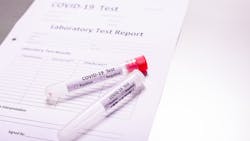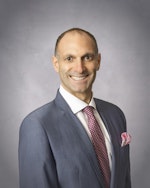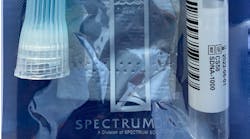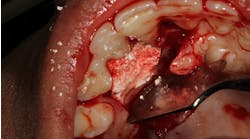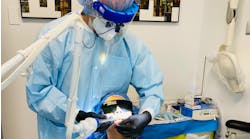What are serology tests?
COVID-19 serological tests measure the presence of antibodies in the blood generated by the immune system when encountering the SARS-CoV-2 virus. Most of the commercially available tests measure immunoglobulin M (IgM) and immunoglobulin G (IgG) antibodies in either serum, plasma, venous whole blood, or, preferably in a dental office, finger-stick whole blood. IgM antibodies are the first antibodies to appear in response to a novel antigen and would suggest a recently initiated infection. IgG antibodies have a higher affinity for the target antigen and are generated later in the course of infection. These serology tests are called lateral flow immunoassays and use cassettes (figure 1)Why are serology tests useful?
According to a statement from the US Food and Drug Administration (FDA):
“Serological tests can play a critical role in the fight against COVID-19 by helping healthcare professionals to identify individuals who have overcome an infection in the past and have developed an immune response. In the future, this may potentially be used to help determine, together with other clinical data, that such individuals are no longer susceptible to infection and can return to work. In addition, these test results can aid in determining who may donate a part of their blood called convalescent plasma, which may serve as a possible treatment for those who are seriously ill from COVID-19.”1
How accurate are the serology tests?
To understand test accuracy two principles are in play: Sensitivity is the proportion of true positives that actually test positive, and how well a test is able to detect positive individuals in a population. In other words, if the patient has the antibodies in the sample, can the test detect those antibodies? Most of the serology tests claim to have an IgM sensitivity of 62%–97% and an IgG sensitivity in the range of 86%–100% (with a 95% confidence interval).2 The problem with these tests is that many will falsely test negative in the early incubation phase of the disease, thus lowering the sensitivity of the test.
The specificity is the proportion of true negatives that actually test negative. It reflects how well an assay performs in a group of disease-negative individuals. The majority of the serology tests claim to have an IgM specificity of 86%–100% and an IgG specificity of 90%–100% (with a 95% confidence interval), indicating that the number of people who falsely test positive is very low.
Can a dentist administer these tests?
A certificate from the Clinical Laboratory Improvement Amendments of 1988 (CLIA) is required for any laboratory testing. There are two appropriate certificates under the current COVID-19 conditions. A Certificate of Waiver (COW) is for laboratory tests designated as waived by the FDA. A Certificate of Compliance (COC) is required for a laboratory performing moderate- or high-complexity testing. Director qualifications are minimal for a COW and the certificate is easier to obtain. To acquire this certificate, submit an FDA CLIA application to your state’s department of health. They will then contact you and request certain forms such as disclosure of ownership, your dental license, and IRS forms with Tax ID (states vary). The requirements for a COC are much higher. For a moderately complex laboratory certificate, a physician without any prior COC experience would need to take a 20-hour course. For a high-complexity laboratory certificate, the director of the lab needs to be at an anatomical or clinical pathologist’s training.
The FDA determines how tests are categorized. It has issued numerous emergency use authorizations (EUA) for a variety of tests. The tests approved under an EUA have a complexity level designation assigned by the FDA. A laboratory test without an EUA can only be tested in a high-complexity laboratory. Many laboratory tests with an EUA are also high complexity. As of the date of this article publication, there are three serology (IgG/IgM) tests approved for COC moderately complex level laboratories:
• Chembio Diagnostics Systems Inc.—IgM and IgG; for labs approved to perform high- and moderate-complexity tests
• Ortho Clinical Diagnostics Inc.—total antibody; for labs approved to perform high- and moderate-complexity tests
• Cellex Inc.—IgM and IgG; for labs approved to perform high- and moderate-complexity tests
Conclusion and author’s opinion
At this time there are no serology tests qualified and approved for testing in a COW.3 Currently, all serology tests other than the three mentioned above are classified as high complexity. The FDA routinely updates its website and may eventually issue an EUA for these tests that would allow them to be used in a COW. As our government continues to figure out how the economy will get started again and when the return-to-normal life will resume, the words surveillance and testing are continuously mentioned. Testing is an extremely important method to try to contain the so-called “next wave” of cases. A dental office provides a great ally to this cause at it can be a center of both testing and surveillance. Many patients visit the dentist more often than medical offices, so dental practices must be able to join the front lines against COVID-19 by offering ways to eliminate potential transmission and detect viral carriers. Because of the latency phase and varying incubation times of this virus, sensitivity of antibody detection may not be as high as desired, especially for IgM. However, this test should be used as one layer of risk stratification. Even at the lowest range, detecting the presence of antibody in two-thirds of patients gives dental health-care workers the ability to reschedule and lower transmission potential to all people in the office.
Author’s note: Special thanks to the New York State Department of Health Physician Office Laboratory Evaluation Program for information gathered in writing this article.
References
1. Hahn SM. Coronavirus (COVID-19) update: serological tests. US Food and Drug Administration. April 7, 2020. https://www.fda.gov/news-events/press-announcements/coronavirus-covid-19-update-serological-tests
2. Rapid COVID-19 antibody detection tests: principles and methods. Antibody Genie. https://www.assaygenie.com/rapid-covid19-antibody-detection-tests-principles-and-methods
3. Emergency use authorization. In vitro diagnostic products. US Food and Drug Administration. Updated April 16, 2020. https://www.fda.gov/emergency-preparedness-and-response/mcm-legal-regulatory-and-policy-framework/emergency-use-authorization#covidinvitrodev
Editor’s note: This article originally appeared in Perio-Implant Advisory, a newsletter for dentists and hygienists that focuses on periodontal- and implant-related issues. Perio-Implant Advisory is part of the Dental Economics and DentistryIQ network. To read more articles, visit perioimplantadvisory.com, or to subscribe, visit dentistryiq.com/subscribe.
